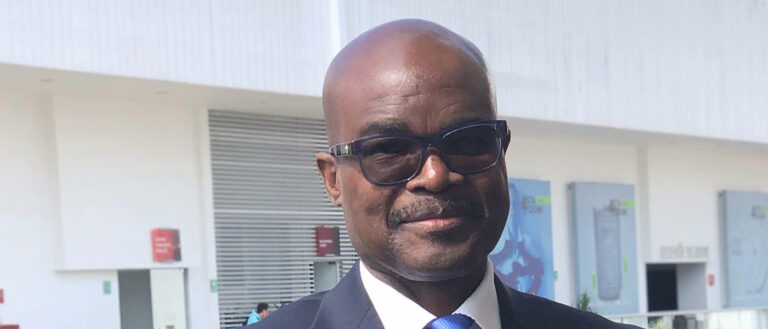Paul Tiyambe Zeleza has experienced life in countries around the world—from the West Indies and Kenya to the United States and Canada. Throughout his travels, he’s worked in higher education in six countries on three continents.
“My birth family is transnational,” Zeleza shared. “All of my siblings were born in different countries and we speak multiple languages. In a sense, travel and movement internationally has been there from the very beginning.”
This fall, Zeleza brought his transnational experiences to Case Western Reserve University as an associate provost and visiting professor for Siegal Lifelong Learning. He’s also serving as the North Star Distinguished Professor at the College of Arts and Sciences.
While moving from Kenya, where Zeleza was the vice chancellor (president) and professor of the humanities and social sciences at the United States International University-Africa to Cleveland was a big change, it wasn’t Zeleza’s first.
He received three academic degrees all in different countries—a bachelor’s degree at the University of Malawi, master’s degree at the University of London and PhD at Dalhousie University in Nova Scotia—providing him with expertise in history, English, African history, international relations and African economic history. Zeleza’s deep interest in interdisciplinary approaches to teaching and learning has followed him throughout a career of appointments in more than one discipline.
“In a sense I’ve always been curious with an insatiable hunger to know and find out what things are and how they are kept to be that way,” he said. “It led me to be fairly interdisciplinary. I absolutely love that my appointments have been in more than one discipline because I think it is at those intersections of disciplines where new insights emerge and you get to learn things that you wouldn’t otherwise learn.”
This semester, he will be teaching his first course at Case Western Reserve University—HSTY 372: Africa’s International Relations: 1945 to the Present. Learn more about the department in which Zeleza will teach, but first get to know him in this week’s five questions.
1. What’s the most thought-provoking class you’ve ever taken?
I was racking my brain about that because I’ve had so many. But, if I had to choose one? It was a course in economic history. There was a lot of reading and I love reading. We had to read about the economic histories of so many regions. It was an incredible opportunity to see how European, Asian, African and Latin American economies developed over time.
2. Where is the best place to spend a day in Cleveland?
The walking trails and parks! I just love walking in the parks and sitting on the benches. Just taking in the beauty and feeling peaceful.
3. How do you like to start your day?
Looking at my iPad to read all of the newspapers I subscribed to: The New York Times, Washington Post, Wall Street Journal, The Guardian, newspapers from Kenya, South Africa, and Malawi, as well as the daily updates from the academic media, such as The Chronicle of Higher Education, Times Higher Education, University World News and Inside Higher Education. Each morning I skim the papers and save the stories I want to read for later. I’m mostly fascinated by the opinion pieces because as a historian it represents an initial historical account of events.
4. What is the best advice you ever received?
My PhD supervisor told me that after I finished my dissertation to try to embark on a new area of research. I said, “really?” Usually social scientists take their dissertation and publish it as a book. I took his advice. I started reading, writing and researching in other areas. Looking back now, I think it helped me build my own previous curiosity and interest in interdisciplinary scholarship. It kept me continually searching for new areas of research. Since then I have published 27 books, five short monographs, and more than 400 journal articles, book chapters, encyclopedia entries and online essays.
5. What’s your favorite thing about Case Western Reserve?
It’s the integrated focus between excellence and research. Excellence in teaching and learning and in services and facilities. It’s a powerful excellence in the key areas in the university. I see excellence as the common theme and that makes me smile.

